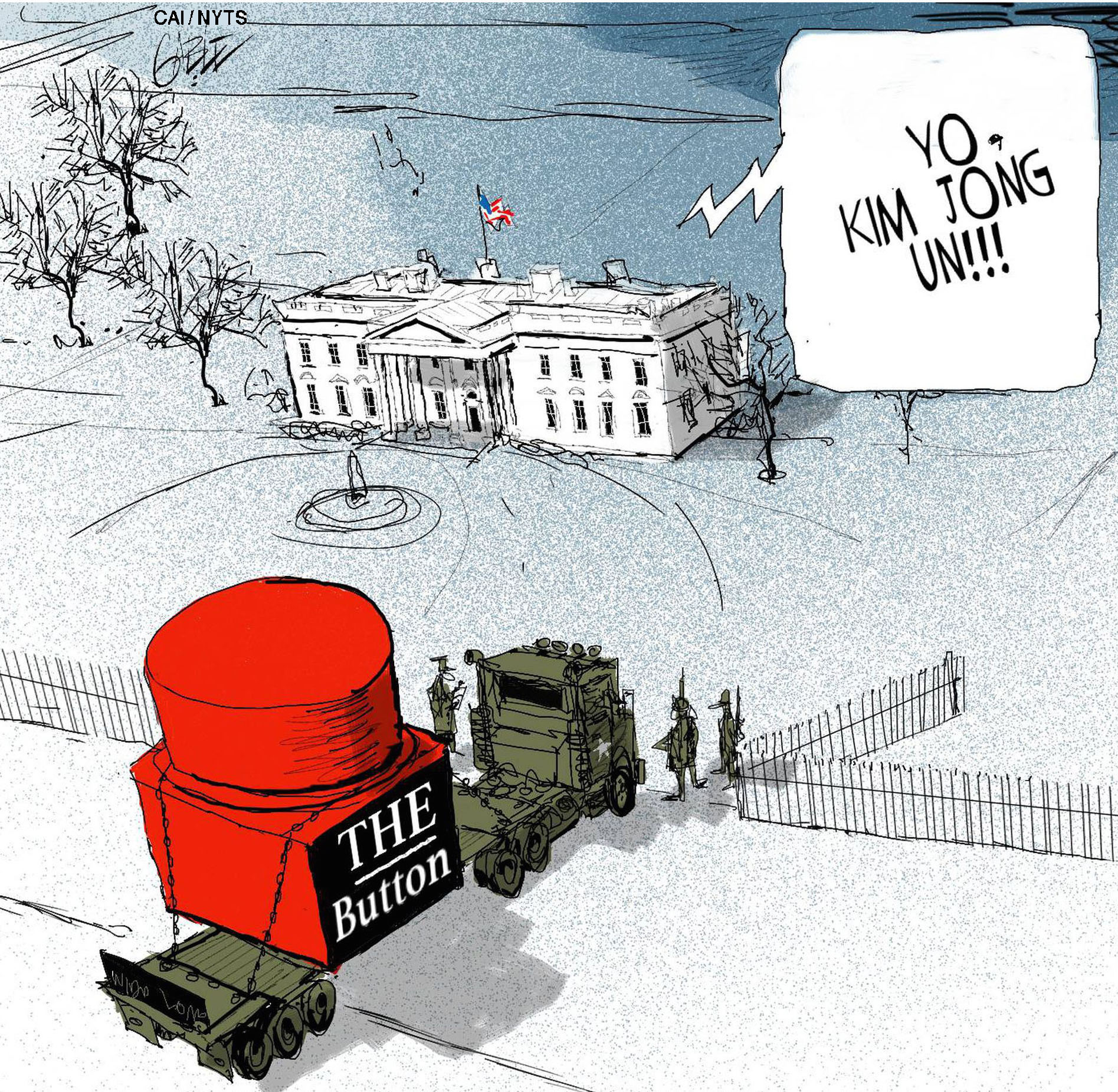We begin 2018 with a surreal contest between U.S. President Donald Trump and North Korea's Kim Jong Un as to whose nuclear button is bigger. Against North Korea's anxiety-inducing rapid nuclear advances, the biggest positive story line of 2017 was a new United Nations nuclear ban treaty adopted on July 7 and opened for signature on Sept. 20.
It strengthens the norms of nonproliferation and those against nuclear testing, reaffirms the disarmament norm, rejects the nuclear deterrence norm and articulates a new universal norm against possession. Once in force, it will become part of the legal architecture for disarmament and all countries must adjust to this new institutional reality. It will reshape how the world community thinks about and acts in relation to nuclear weapons and those who possess the bomb.
For Australia, Japan and other allies of the United States, nuclear disarmament is of lower priority than indefinitely bolstering and sustaining the legitimacy and credibility of nuclear deterrence. Their instinct is to support incremental, verifiable and enforceable agreements and commitments, but there is no detailed framework for actual elimination, verification and enforcement in the ban treaty. Consequently, they insist, the treaty will neither promote global nuclear disarmament nor strengthen national security.



